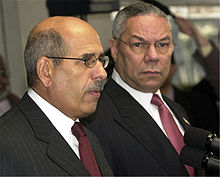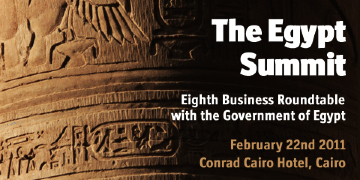What's wrong with RAW?
It has been a terrible summer for espionage. In the US, a Senate Intelligence Committee report flayed the CIA for the 'mischaracterization of intelligence,' for promoting 'groupthink' and for 'poor management.'
These problems, said the Senators unhelpfully, 'will not be solved by additional funding and personnel.' In the UK, an inquiry headed by former Cabinet Secretary Lord Butler held the MI6 guilty of assessing Saddam Hussein's [ Images ] arsenal with the 'outer limits of intelligence available.' The intelligence supplied to the British government, suggested Butler, was 'insufficiently robust' to suggest that Iraq had violated UN resolutions. More to the point, Butler berated MI6 for getting directly involved in the presentation of the controversial Iraq dossier which the British government used to justify its participation in the Iraq war.
What is significant about these reports is not merely their political implications but the fact that, for the first time in living memory, the intelligence agencies have been subjected to a semblance of public scrutiny. A grey area of national security and foreign policy which was deemed strictly out of bounds has been brought into the arena of public debate, without compromising operational details. For those concerned with the quality of democracy, it is a great leap forward.
It is tragic that the winds of accountability have not yet been felt in India [ Images ]. Since the Kargil [ Images ] conflict of 1999, the performance of the intelligence agencies have been a cause of some concern. The dismay felt at the underlying intelligence failure to anticipate the audacious incursions in Kargil have been compounded by a recent scandal over the defection of RAW operative Rabinder Singh. Singh is said to have fled the country via Nepal using an American passport.
Why is the US spying on India?
If Kargil highlighted the professional shortcomings of intelligence inputs, Singh's defection has brought into focus the porous underbelly of RAW and the slackness of its activities. A recent sweep of the RAW headquarters in Delhi [ Images ], for example, revealed the existence of bugging devices in two operational rooms and the office of the RAW chief.
It is not that the establishment doesn't recognise the inadequacies. Following the revelations of intelligence failure in the K Subrahmanyam Committee report on the Kargil conflict, the NDA government appointed a task force headed by former RAW chief Girish Chandra Saxena to recommend reforms. Saxena's report was further examined by a Group of Ministers headed by then deputy prime minister L K Advani [ Images ] which made concrete recommendations in 2001. Although the task force report and the GoM recommendations were, predictably, not made public, it is understood that the reform of Indian intelligence centred on personnel, internal restructuring and coordination.
It speaks volumes for the warped priorities of the political class that hardly anything of the proposed changes were put into effect. The political grapevine of Delhi suggests that at least one senior functionary in the NDA government used RAW as his personal fiefdom. In true bureaucratic style, the furore over Singh's defection has led to yet another committee headed by the Cabinet secretary. Now that the UPA government has a full-time national security adviser and another adviser specialising in internal security, there is greater optimism that the intelligence agencies will be overhauled with an eye to better results.
At the heart of the problem is the quality of personnel, an issue that was dealt with in detail by Saxena's task force. To put it bluntly, RAW lacks the requisite calibre of people to collect, collate and assess intelligence. The understanding of foreign societies and governments require a degree of professional competence, including language skills, that don't seem to be available.
The CIA and MI6 have talent-spotters at the best universities; RAW either diverts people from the police or induct relatives of serving officials. During the Kargil conflict, Indian intelligence didn't have the people to decipher intercepts in Pushto. They had to finally round up some Afghan refugees to help out. Recently, Gujarat Chief Minister Narendra Modi [ Images ] called for the establishment of a separate intelligence service. Unfortunately, his suggestion has not been treated with the seriousness it warrants.
The government expends a great deal of resources in posting RAW officers, either openly or undercover, in important overseas postings. In addition, RAW has access to slush funds for servicing agents on the ground. It is not desirable that the details of these operations should be made public. Yet, there is a need for some semblance of internal accountability and assessment of performance. There is no evidence to suggest that this exercise is being routinely carried out.
It is necessary, for example, to review the quality of human intelligence from countries such as Pakistan, Afghanistan, Nepal, Myanmar and China. Has the quality of 'humint' (human intelligence) taken a nosedive because it is often more convenient to depend on satellite imagery and other intercepts? Yet, as is well recognised, no intelligence assessment is complete without a large humint input.
Second, Indian intelligence inputs suffer from groupthink. It is often assumed, not incorrectly, that ministers should be fed what is expedient and not what is necessarily accurate. If tell-tale evidence of Pakistani designs in Kargil was glossed over, it is because intelligence chiefs imagined it was their job to make the Lahore [ Images ] agreement work. In the aftermath of Atal Bihari Vajpayee's [ Images ] peace initiative in October 2003, there was considerable confusion in the intelligence services over the wisdom of bringing discordant trends to the Cabinet's notice.
The underlying politicisation of the intelligence agencies is a curse. Only too often, RAW and IB have been used for explicitly political projects, particularly in Kashmir [ Images ] and the north-east. There is an important distinction between using intelligence inputs for decision-making and using intelligence agencies for political engagement. Unfortunately, our politicians haven't kept the two separate. There is no earthly reason why RAW and IB officers should be used to conduct dialogue with insurgent groups and rebels. That is a political task which should be assigned to either politicians or civil servants.
Likewise, there is a need to amend the rules of business to prevent the enlargement of intelligence to include surveillance of political rivals. The task of the intelligence agencies is to detect and anticipate threats to national security and provide information that assists in promoting the strategic objectives of foreign policy. It is not the job of the IB, for example, to predict the outcome of elections. Apart from getting it wrong most of the time, the energies of the agency is squandered in bazaar gossip and meaningless political tittle-tattle. There should be stringent guidelines defining what is permissible and what is illegal.
What is needed is a paradigm shift in the politicians' approach to intelligence. The intelligence agencies can begin doing their job only when their priorities have been bluntly identified and the right people chosen for the tasks. If ministers want an army of private informers they will get them, but the damage to national security will be incalculable. If India wants to be a great power, it will help if those at the helm spend time reading the Senate Committee and Butler reports.
__._,_.___







